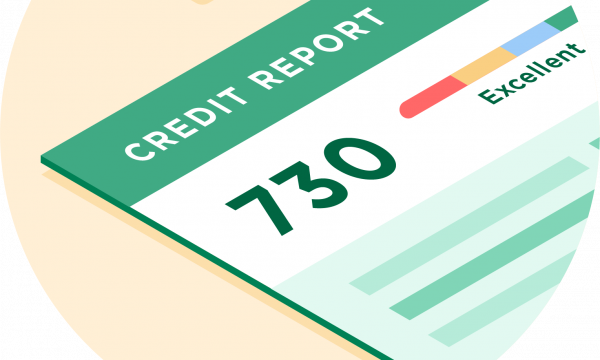How to Freeze and Unfreeze Your Credit with All 3 Bureaus
You can place a free freeze – or unfreeze your credit – with each bureau online, by phone or by mail. A credit freeze restricts access to your credit report.
Many, or all, of the products featured on this page are from our advertising partners who compensate us when you take certain actions on our website or click to take an action on their website. However, this does not influence our evaluations. Our opinions are our own. Here is a list of our partners and here's how we make money.
Data breaches and identity theft seem to be commonplace these days.
If you want to protect yourself, freezing your credit offers peace of mind that no one can open an unwanted account in your name — potentially ruining your credit and forcing you to deal with the damage.
» RELATED: How to protect yourself after a data breach
What is a credit freeze?
A credit freeze — also known as a security freeze — blocks access to your credit reports from scammers and others who might attempt to open fraudulent accounts in your name.
When someone applies for credit using your personal information, a lender or card issuer typically checks your credit before making a decision. If your credit is frozen, the creditor can't see the data required to approve the application. A credit freeze stays in place until you lift or "thaw" it.
A credit freeze is one major way to help prevent identity theft and fraud, even if someone has key information, such as your birthdate and Social Security number.
Freezing your credit is free and won't harm your credit.
How to freeze your credit with all 3 bureaus
Contact each of the three major credit bureaus — Equifax, Experian and TransUnion — individually to freeze your credit:
| Equifax | Experian | TransUnion |
|---|---|---|
| Manage your Equifax credit freeze: Call 888-378-4329 Equifax Information Services LLC P.O. Box 105788 Atlanta, GA 30348-5788 | Manage your Experian credit freeze: Call 888-397-3742 Experian Security Freeze P.O. Box 9554 Allen, TX 75013 | Manage your TransUnion credit freeze: Call 800-909-8872 TransUnion P.O. Box 160 Woodlyn, PA 19094 |
| Our guide to getting an Equifax credit freeze. | Our guide to getting an Experian credit freeze. | Our guide to getting a TransUnion credit freeze. |
How long does it take to freeze credit?
The quickest way to freeze your credit is online through your profile with each major credit bureau. But placing a freeze over the phone is fast, too.
Bureaus must place the freeze within one business day if you request it online or by phone, according to the Consumer Financial Protection Bureau . The bureaus have three business days to freeze your credit after receiving a mailed request.
Request your credit reports in Spanish
You can request your credit report in Spanish directly from each of the three major credit bureaus:
- TransUnion: Call 800-916-8800.
- Equifax: Visit the link or call 888-378-4329.
- Experian: Click on the link or call 888-397-3742.
Usted puede solicitar una copia de su informe crediticio (gratis y en español) de cada una de las tres principales agencias de crédito:
- TransUnion: Llame al 800-916-8800.
- Equifax: Visite el enlace o llame al 888-378-4329.
- Experian: Haga clic en el enlace o llame al 888-397-3742.
What information do you need to freeze your credit?
Gather all the documents you will need before initiating a credit freeze. While all three credit bureaus have slightly different requirements, you'll generally need to provide your:
- Social Security number.
- Date of birth.
- Address.
Depending on how you initiate the credit freeze, you might also need the following to verify your identity and address:
- Copy of your passport, driver’s license or military ID.
- Copy of tax documents, bank statements or utility bills.
If you freeze your credit by phone, be prepared to answer additional authentication questions.
When should you freeze your credit?
NerdWallet recommends freezing your credit if you’re not actively shopping for a credit card or loan.
It's especially important to freeze your credit if you suspect your personal or financial information has been compromised — such as in a data breach or phishing scam. Even if there’s no confirmed misuse, taking this step can give you added peace of mind.
Other situations when a credit freeze makes sense include:
- You’ve lost your wallet or personal documents.
- You receive authentic alerts about suspicious activity on your accounts.
- You're a victim of identity theft or fraud.
- You want to take extra precautions to protect a child's credit.
Why should you freeze your credit?
Freezing your credit is one of the only free tools you have to protect your credit. It’s fast and easy to freeze or thaw your credit as needed. In essence, you’re in control.
Freezing your credit might come with inconveniences, like having to remember to lift the freeze when you want to apply for credit. But that's minor compared with the damage that can be done to your credit if left unfrozen and unprotected.
Don’t let a freeze lull you into a false sense of security, though. You may still be susceptible to fraudulent charges on an existing credit card or other account if it has been compromised. Health care and tax refund scams are also prevalent.
It’s still important to check monthly statements carefully for signs of fraudulent activity.
» NEXT: How to check if your credit is frozen
Who can access your frozen credit reports?
A credit freeze makes your credit reports inaccessible to most people, with a few exceptions:
- You can access your own records, including your free weekly credit reports.
- Your current creditors still have access, as do debt collectors.
- Marketers can see your credit reports for the purpose of sending you offers.
- In certain circumstances, government or child support agencies can see them.
- You can permit an employer or potential employer to check your credit, although the version they see omits certain details.
» Get a free credit report from NerdWallet, even while your credit is frozen
Credit lock vs freeze
Both a credit freeze and a credit lock block access to your credit reports, but there are some major differences. Credit freeze services are mandated by federal law and are free. A credit lock is a product offered voluntarily by a credit bureau, which may charge a fee and be limited in scope:
- Equifax’s Lock & Alert credit lock is free but only covers your Equifax credit report.
- Experian’s CreditLock is available only as part of a $24.99 per month subscription package. It monitors your credit reports at all three major bureaus.
- TransUnion no longer offers a credit lock feature.
Credit locks may offer convenience, such as being opened and closed with a finger swipe on an app, but they offer fewer legal protections than a freeze, can cost money and don't always cover all your credit reports.
Stress less. Track more.
See the full picture: savings, debt, investments and more. Smarter money moves start in our app.
How to unfreeze your credit
To unfreeze or "thaw" your credit, go to the credit bureau website and log into the account you used to freeze it. There will be an option to unfreeze your credit. You may also be able to remove the freeze by phone or mail if you can provide certain verifying information.
You must unfreeze your credit with each individual credit bureau.
The fastest way to unfreeze your credit is online or by phone. Those requests must be granted in one hour. Unfreezing by mail takes three business days from when the bureau receives your request.
Reasons for unfreezing your credit
While it's a good idea to keep your credit frozen all the time, there are some circumstances where you might need to thaw it temporarily, such as applying for a new line of credit.
Whether you're in the market for a new car, mortgage, rental apartment or cell phone, your credit report will be pulled by the lender to assess your ability to pay.
You might also need to unfreeze your credit if you plan to use a "buy now, pay later" service while online shopping. For example, Affirm — one of the most popular BNPL platforms — instructs applicants to temporarily lift credit freezes at all bureaus where they've placed them.

Frequently Asked Questions
Can I still use my credit card if I freeze my credit?
Yes. A credit freeze does not affect your ability to use any of your existing credit cards, make payments, dispute charges, earn or redeem rewards or change information like your mailing address. A credit freeze simply prevents new credit cards and other accounts from being opened in your name and without your permission.
How do you freeze your child’s credit?
Parents and guardians can freeze the credit of a child under 16 to prevent child identity theft.
If you request a freeze for your child, the credit bureau must create a credit file for the child (assuming they don't already have one), then freeze it. In addition to supplying the information required for an adult credit freeze, you’ll also need paperwork to verify the child's identity and proof that you have standing to freeze the child’s credit.
Can you freeze another adult's credit?
You can freeze the credit of a spouse or incapacitated adult at all three bureaus. You’ll need to provide the required documentation (copies of birth certificates, court orders and copies of Social Security cards, for example) and mail them to Experian, Equifax and TransUnion. Look for downloadable freeze request forms, which can be found on each bureau’s security freeze page, or contact the bureaus directly for assistance.
Does freezing my credit impact my ability to create a Social Security account?
Freezing your credit can complicate creating a mySocialSecurity account, which is used to track earnings and estimate future benefits, alongside other features. The easiest workaround is to thaw your credit for one day so you can create your account online. After that 24-hour period, your credit freeze will be put back into place. If you want to keep your freeze in place, you'll have to use ID.me to make an account or contact your local Social Security office.
Article sources
NerdWallet writers are subject matter authorities who use primary,
trustworthy sources to inform their work, including peer-reviewed
studies, government websites, academic research and interviews with
industry experts. All content is fact-checked for accuracy, timeliness
and relevance. You can learn more about NerdWallet's high
standards for journalism by reading our
editorial guidelines.
- 1. Consumer Financial Protection Bureau. What is a credit freeze or security freeze on my credit report?. Accessed Jan 12, 2026.
On this page
Related articles








